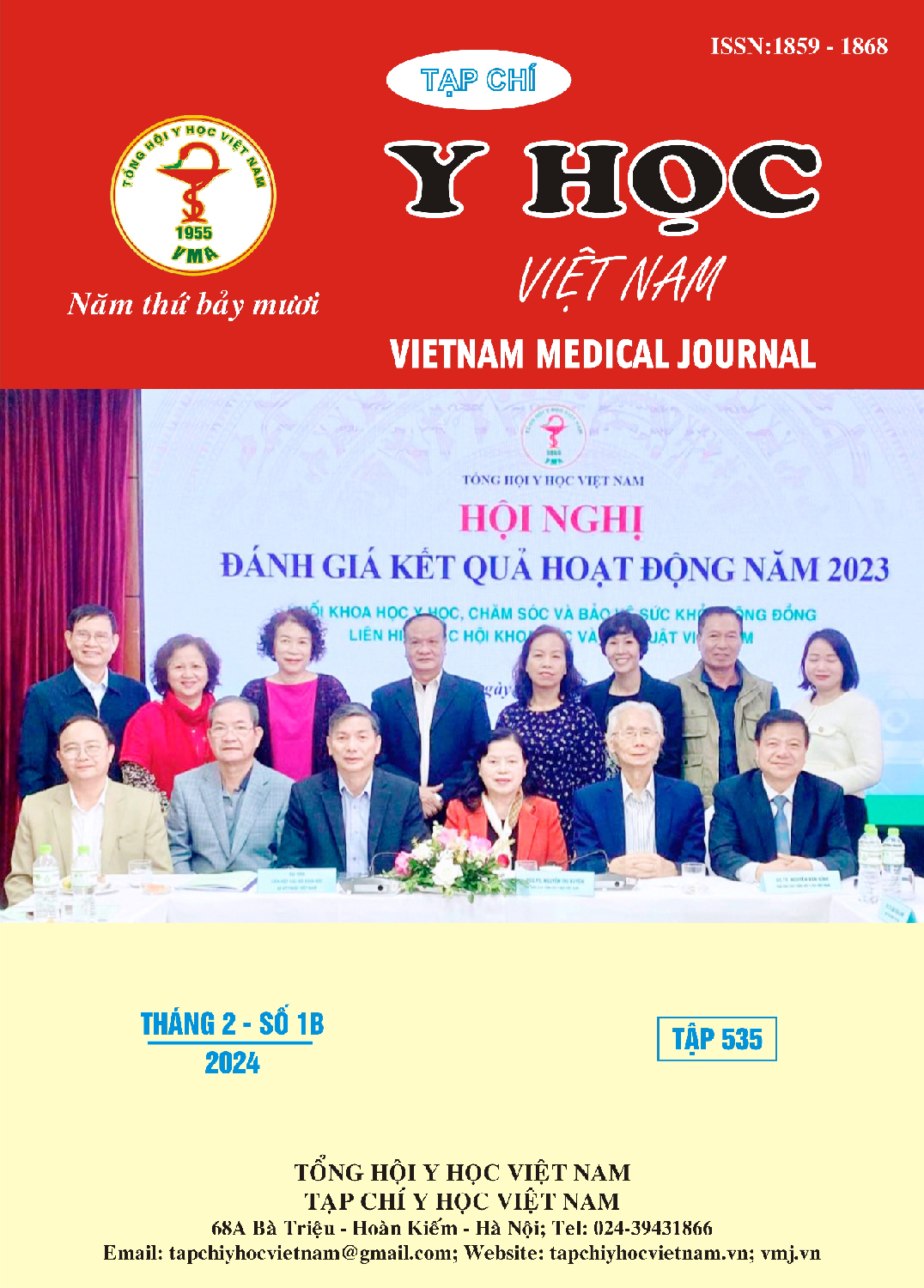EVALUATING THE SAFETY, FEASIBILITY, AND EARLY TO MID-TERM RESULTS OF MINIMALLY INVASIVE SURGERY FOR RHEUMATIC MITRAL VALVE DISEASE
Main Article Content
Abstract
Objective: This study assesses the safety, feasibility, and early to mid-term outcomes of minimally invasive cardiac surgery for rheumatic mitral valve disease. Material and Methods: We retrospectively analyzed 125 patients with rheumatic mitral valve disease who underwent minimally invasive mitral valve replacement via right thoracotomy from January 2019 to December 2022. Results: The patients' average age was 52.9 ± 10.4 years, with 69.6% females. Eighty percent were admitted due to exertional dyspnea, and 71.2% had NYHA II heart failure preoperatively. Echocardiograms revealed characteristic rheumatic mitral valve lesions in 96.8%, predominantly stenosis with valve regurgitation (84.8%). The mean left ventricular ejection fraction was 56.9 ± 6.0%. EuroSCORE II-assessed mortality was 2.2 ± 1.4%. Cardiopulmonary bypass (CPB) and aortic cross-clamp (ACC) times averaged 144.4 and 92.2 minutes, respectively, with a 0.8% conversion rate to sternotomy. Mechanical mitral valve replacement was done in 63.1% of cases. Average mechanical ventilation and ICU times were 21.2 and 72.3 hours, respectively. Four percent required reoperation for bleeding, and 3.2% resulted in in-hospital mortality, with 0.8% due to Takotsubo cardiomyopathy. Factors affecting 30-day post-surgery mortality included CPB duration. At a medium-term follow-up (14.4 months), mortality was 1.7%, with a two-year survival rate of 98.3%. Conclusion: Minimally invasive mitral valve replacement via right thoracotomy is a safe and effective approach for managing rheumatic valve disease. During initial adoption, careful patient selection, especially focusing on younger individuals with fewer comorbidities, is essential.
Article Details
Keywords
: Rheumatic mitral disease, minimally invasive surgery, mitral valve replacement
References
2. Vo AT, Le KM, Nguyen TT, et al. Minimally Invasive Mitral Valve Surgery for Rheumatic Valve Disease. Heart Surg Forum 2019; 22: E390-E395. 2019/10/10. DOI: 10.1532/hsf.2529.
3. Le HQ. Initial results of video-assisted thoracoscopic minimally invasive mitral valve replacement with fast tract cardiac anesthesia at Viet Duc University Hospital. Journal of Clinical Medicine 2022. DOI: 10.38103/jcmhch.78.4.
4. Modi P, Rodriguez E, Hargrove WC, 3rd, et al. Minimally invasive video-assisted mitral valve surgery: a 12-year, 2-center experience in 1178 patients. The Journal of thoracic and cardiovascular surgery 2009; 137: 1481-1487. 20090329. DOI: 10.1016/j.jtcvs.2008.11.041.
5. Nguyễn Đức Hiền and Bùi Đức Phú. Đánh giá kết quả phẫu thuật thay van 2 lá cơ học ở bệnh nhân hẹp van 2 lá. Tạp chí Y học Việt nam 2010: 267-276.
6. Berretta P, Kempfert J, Van Praet F, et al. Risk-related clinical outcomes after minimally invasive mitral valve surgery: insights from the Mini-Mitral International Registry. European journal of cardio-thoracic surgery: official journal of the European Association for Cardio-thoracic Surgery 2023; 63. DOI: 10.1093/ejcts/ezad090.
7. Laghlam D, Touboul O, Herry M, et al. Takotsubo cardiomyopathy after cardiac surgery: A case-series and systematic review of literature. Front Cardiovasc Med 2022; 9: 1067444. 20230110. DOI: 10.3389/fcvm.2022.1067444.
8. Doenst T, Berretta P, Bonaros N, et al. Aortic cross-clamp time correlates with mortality in the mini-mitral international registry. European Journal of Cardio-Thoracic Surgery 2023; 63. DOI: 10.1093/ejcts/ezad147.


